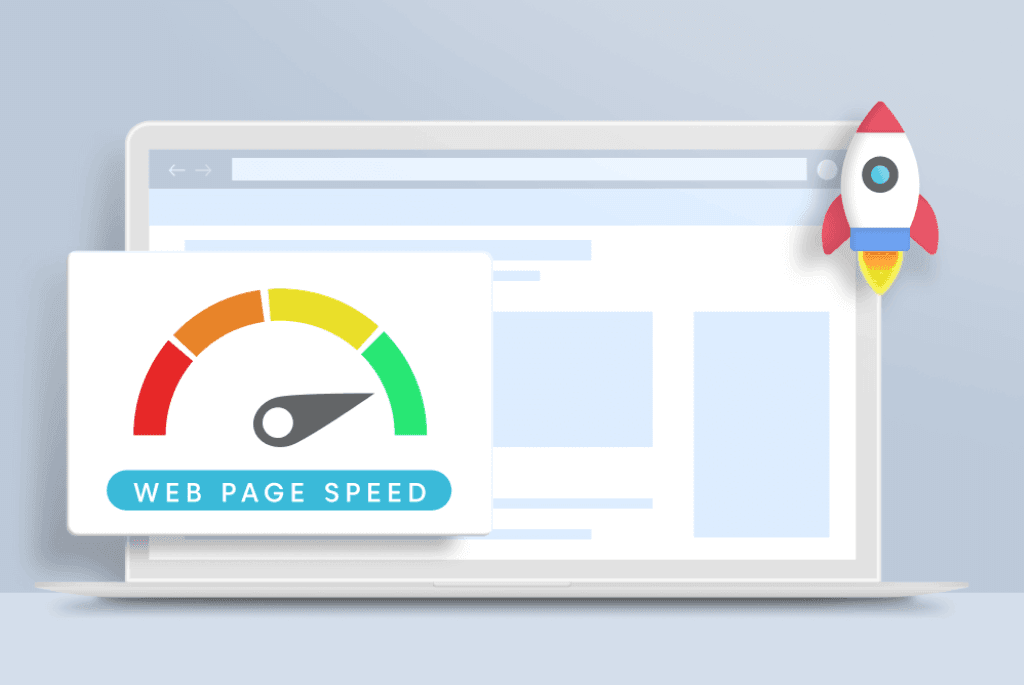Introduction
In today’s digital age, having an online presence is not enough—you need to ensure that your website is visible to the right audience. That’s where SEO (Search Engine Optimization) plays a crucial role. SEO is the process of optimizing your website to improve its Search Engine Ranking, helping it appear higher in search results on platforms like Google.
For those new to SEO Basics, it involves strategies like optimizing website content, using relevant keywords, improving site speed, and earning backlinks. But How SEO Works goes beyond just keywords—it’s about enhancing user experience, making your site mobile-friendly, and following search engine algorithms to rank better.
This guide is designed to simplify SEO for Beginners, helping you understand how search engines rank websites and what steps you can take to drive more organic traffic. Whether you’re a business owner, blogger, or digital marketer, mastering SEO is key to growing your online presence effectively.
What Is SEO?

SEO (Search Engine Optimization) is the practice of optimizing a website to improve its visibility on search engines like Google, Bing, and Yahoo. The higher a website ranks in Search Engine Ranking, the more likely it is to attract organic (non-paid) traffic.
For SEO beginners, understanding how SEO works is crucial. Search engines use complex algorithms to analyze websites and determine their rankings based on various factors. These include keyword relevance, content quality, backlinks, mobile-friendliness, and website speed.
SEO is divided into three main categories:
✅ On-Page SEO – Optimizing website content, meta tags, headings, and internal linking.
✅ Off-Page SEO – Building backlinks and improving domain authority.
✅ Technical SEO – Enhancing site speed, mobile responsiveness, and indexing.
By implementing SEO basics, businesses and individuals can increase their website traffic, generate leads, and improve brand awareness. Unlike paid advertising, SEO offers long-term benefits and sustainable growth. Whether you’re running a blog, an e-commerce site, or a business website, SEO for beginners is an essential digital marketing strategy that helps you reach the right audience and stay ahead of the competition.
Why Is SEO Important?
SEO is crucial for businesses, bloggers, and website owners because:
✅ Increases Website Visibility – SEO helps your website rank higher on search engines, making it easier for users to find you.
✅ Drives Organic Traffic – Unlike paid ads, SEO brings free, long-term traffic from search engines.
✅ Boosts Credibility & Trust – Websites that rank on the first page of Google are seen as more reliable and trustworthy.
✅ Improves User Experience – SEO enhances website speed, mobile-friendly, and easy navigation, keeping visitors engaged.
✅ Higher ROI Compared to Paid Ads – SEO provides sustainable results without continuous spending on advertisements.
✅ Local SEO Attracts Nearby Customers – businesses benefit from local SEO, helping them appear in location-based searches.
✅ Competitive Advantage – Strong SEO strategies help you stay ahead of competitors in your industry.
✅ Supports Content Marketing – Well-optimized content improves rankings and drives more engagement.
✅ Generates More Leads & Sales – Higher rankings bring in targeted visitors, increasing conversions.
✅ Long-Term Business Growth – SEO provides lasting benefits, ensuring continuous traffic and brand awareness.
SEO Basics: The Key Elements of SEO
To improve your website’s search ranking, focus on these main aspects of SEO:
1. On-Page SEO
On-Page SEO refers to optimizing individual web pages to improve their search engine ranking and attract organic traffic. Here are the key elements of On-Page SEO
1. Title Tags – Crafting a unique, keyword-rich title for each page that accurately represents its content.
2. Meta Descriptions – Writing compelling meta descriptions that summarize the content and include relevant keywords.
3. Header Tags (H1, H2, H3, etc.) – Organizing content with proper header tags to enhance readability and include target keywords.
4. URL Structure – Creating clean, descriptive, and SEO-friendly URLs that include relevant keywords.
5. Keyword Optimization – Strategically placing target keywords in the content, headings, and image alt tags without overstuffing.
6. Content Quality – Writing high-quality, engaging, and original content that answers user queries and provides value.
7. Internal Linking – Linking to other relevant pages on your site to improve navigation and help search engines crawl your website.
8. Image Optimization – Compressing images for faster loading times and using descriptive alt text to improve SEO.
9. Mobile-Friendliness – Ensuring your website is responsive and provides a good user experience across all devices.
10. Page Load Speed – Optimizing site speed for a better user experience and improved rankings.
2. Off-Page SEO
Off-page SEO includes external efforts to improve rankings.
1. Backlinks – Earning high-quality backlinks from authoritative websites signals trust and credibility to search engines.
2. Social Media Engagement – Sharing your content and engaging with followers on social platforms can increase brand visibility and drive traffic.
3. Guest Blogging – Writing articles for other websites or blogs within your industry helps build backlinks and expands your audience.
4. Influencer Marketing – Collaborating with influencers can boost your brand’s credibility and help you reach new audiences.
5. Brand Mentions – Having your brand mentioned on external sites, even without a link, can improve your domain authority.
6. Local Citations – Listing your business on local directories helps improve your local SEO and visibility.
7. Social Bookmarking – Submitting your website to social bookmarking sites (e.g., Reddit, Digg) can drive traffic and build backlinks.
8. Forum Participation – Engaging in industry-related forums and communities can increase visibility and allow you to share your expertise.
9. Reviews & Testimonials – Positive reviews on third-party sites improve credibility and contribute to SEO efforts.
10. Content Sharing & Distribution – Distributing your content across platforms like Medium, Quora, or SlideShare can increase reach and generate backlinks.
3. Technical SEO
Technical SEO improves the backend of your website.
1. Website Speed – Ensuring your website loads quickly improves user experience and boosts rankings. Faster websites are favored by both search engines and users.
2. Mobile-Friendliness – Optimizing your website for mobile devices is essential, as more users browse the web on smartphones and search engines prioritize mobile-friendly sites.
3. XML Sitemap – Creating and submitting an XML sitemap to search engines helps them understand your site structure and index your pages more efficiently.
4. Robots.txt – Properly configuring the robots.txt file ensures search engine bots can access and crawl the important pages on your website while avoiding irrelevant ones.
5. HTTPS Encryption – Switching from HTTP to HTTPS enhances website security, which is a ranking factor for Google. Users also trust HTTPS sites more.
6. Structured Data (Schema Markup) – Adding schema markup to your pages helps search engines understand the content better, which can lead to rich snippets in search results.
7. URL Structure – Using clean, descriptive, and keyword-rich URLs helps search engines and users understand the page’s content.
8. Canonical Tags – Preventing duplicate content issues by implementing canonical tags ensures search engines know which version of a page is the “main” one.
9. Broken Links & Redirects – Regularly checking for broken links and fixing 404 errors, along with implementing proper 301 redirects, ensures a smooth user experience and improves SEO.
10. Crawl Errors – Monitoring and fixing crawl errors using tools like Google Search Console helps search engines index your site correctly.
How to Improve Your Search Engine Ranking
In today’s digital world, improving your website’s search engine ranking is crucial for visibility and success. This article will guide you through the essential aspects of SEO (Search Engine Optimization) and provide clear tips on how to improve your website’s ranking in Google and other search engines.
1. Conduct Keyword Research

2. Create High-Quality Content
One of the most crucial elements of SEO is producing content of the highest caliber. Relevant, interesting, and educational content is given preference by search engines. Focus on giving your audience something of value by answering their queries or resolving their issues if you want to raise your search engine ranking.
Content that is well-written, unique, and comprehensive keeps users on your site longer, which tells search engines that your site is helpful. It’s crucial for novice SEO beginners to properly employ keywords in their writing, but refrain from filling it to the brim. Make an effort to provide content that is easy to read, well-structured, and clear. Superior content increases your chances of appearing higher in search results, establishes authority, and fosters trust.

3. Optimize for User Experience
Optimizing for user experience (UX) is a key factor in SEO and improving your search engine ranking. Search engines like Google prioritize websites that provide a seamless, enjoyable experience for visitors. A well-structured website with fast loading speeds, mobile-friendliness, and easy navigation keeps users engaged and reduces bounce rates.
For SEO beginners, focusing on clear headings, readable fonts, and compelling visuals enhances engagement. Additionally, ensuring a responsive design improves accessibility across devices. How SEO works is directly linked to user satisfaction—if users find your site valuable and easy to use, search engines will reward you with higher rankings.
4. Build High-Quality Backlinks
Building high-quality backlinks is essential for improving your SEO and boosting your search engine ranking. Backlinks are links from other websites to your site, and they act as a vote of confidence in your content. Search engines view backlinks from reputable sites as a signal that your website is trustworthy and authoritative.
For SEO beginners, focus on earning backlinks from high-authority websites in your industry. You can achieve this by creating valuable content, guest posting on relevant blogs, and networking with influencers. Understanding how SEO works includes recognizing that quality matters more than quantity—one strong backlink is better than multiple low-quality ones.
5. Improve Website Speed
Enhancing the speed of your website is essential for SEO and raising your Search engine ranking. A website that loads slowly irritates visitors, raises bounce rates, and degrades search engine rankings. Because they offer a better user experience, search engines give preference to websites that load quickly. Using a content delivery network (CDN), optimizing images, and turning on browser cache can all greatly increase speed for novice SEO beginners.
Reducing code bloat and superfluous plugins are also beneficial. Recognizing that even a few seconds of delay can cost you visits and conversions is essential to understanding how SEO works. In addition to keeping customers interested, a quick website lets search engines know that it is optimized.

6. Optimize for Mobile Devices
Optimizing for mobile devices is essential for SEO and improving your search engine ranking. With most users browsing on smartphones, search engines prioritize mobile-friendly websites. If your site isn’t optimized, it can lead to higher bounce rates and lower rankings.
For SEO beginners, using a responsive design ensures your website adapts to different screen sizes. Improving mobile loading speed, easy navigation, and readable fonts enhance the user experience. Understanding how SEO works includes making sure your site is accessible on all devices. A mobile-friendly website not only improves engagement but also helps boost your search visibility.
7. Use SEO-Friendly URLs
8. Monitor Performance
Monitoring performance is essential for SEO and improving your search engine ranking. Tracking your website’s progress helps you understand what’s working and where improvements are needed. For SEO beginners, using tools like Google Analytics and Google Search Console can provide insights into traffic, keyword rankings, and user behavior.
Regularly checking page speed, bounce rates, and backlinks ensures your SEO basics are strong. Understanding how SEO works includes analyzing data and making adjustments based on performance. By continuously monitoring your site, you can optimize strategies and stay ahead in search rankings.

Common SEO Mistakes to Avoid
Search Engine Optimization (SEO) is essential for driving traffic to websites and improving online visibility. However, many beginners and even experienced marketers make common SEO mistakes that can hurt their search engine ranking. Understanding these mistakes and how to avoid them is key to a successful SEO strategy. This article follows Google’s EEAT (Experience, Expertise, Authoritativeness, and Trustworthiness) guidelines and provides insights into SEO Basics, How SEO Works, and SEO for Beginners.
1. Ignoring Keyword Research
The cornerstone of SEO is keyword research. A lot of website owners either neglect this stage or employ keywords without conducting adequate research.
How to Avoid:
- To locate pertinent keywords, use tools like as Ahrefs, SEMrush, or Google Keyword Planner.
- Pay attention to long-tail keywords that correspond with user intent.
- Steer clear of keyword stuffing, which degrades rankings and readability.
2. Ignoring Mobile Optimization
Google follows a mobile-first indexing approach, meaning mobile-friendliness is essential. A non-responsive website can lose significant traffic.
How to Avoid:
Use a responsive design that adjusts to different screen sizes.
Test your website on Google’s Mobile-Friendly Test tool.
Improve page speed for better mobile performance.
3. Not Optimizing Title Tags and Meta Descriptions
Title tags and meta descriptions are crucial for SEO and user engagement. A poorly written title tag can result in a lower click-through rate (CTR).
How to Avoid:
- Write compelling, keyword-rich title tags (under 60 characters).
- Craft meta descriptions that summarize the content and include keywords naturally.
- Create meta descriptions that naturally incorporate keywords and provide a summary of the content.
4. Poor Website Structure and Navigation
A complicated website structure makes it difficult for search engines and users to navigate your site. Poor navigation can increase bounce rates and affect search engine ranking.
How to Avoid:
Use a clear and logical website structure.
Implement breadcrumb navigation for easy access.
Optimize URL structures to be short and descriptive.
5. Slow Page Speed
One ranking component in Google’s algorithm is page speed. Lower search rankings and a bad user experience are the results of slow-loading pages.
How to Avoid:
- Make use of a Content Delivery Network (CDN) and optimize your photos.
- Reduce the amount of CSS and JavaScript files.
- To speed up loading times, use caching.
6. Not Using Internal Linking
Internal links help search engines understand site structure and improve user experience. Many website owners neglect internal linking, leading to missed SEO opportunities.
How to Avoid:
- Link to relevant pages within your content.
- Use descriptive anchor text for links.
Maintain a proper linking hierarchy to distribute page authority.
7. Failing to Create High-Quality Content
Content is king in SEO. Publishing low-quality or duplicate content can harm search engine rankings.
How to Avoid:
Follow Google’s EEAT guidelines to create valuable, original content.
Use a mix of text, images, and videos to engage users.
Regularly update old content to keep it relevant.
8. Focusing Only on Search Engines, Not Users
SEO is not just about ranking higher; it’s about providing value to users. Some businesses focus too much on search engines and forget user experience.
How to Avoid:
Write for humans first, then optimize for search engines.
Improve website design and readability.
Ensure a smooth and engaging user experience.
9. Not Optimizing for Local SEO
For companies looking to reach a local audience, local SEO is essential. Visibility in local searches may suffer if local SEO tactics are neglected.
How to Avoid:
Take control of your Google My Business profile and make it better..
Make use of location-based keywords.
Promote local citations and client testimonials.
10. Overlooking Technical SEO
Technical SEO includes elements like site indexing, schema markup, and structured data. Ignoring these aspects can prevent search engines from properly crawling and ranking your site.
How to Avoid:
Use XML sitemaps and robots.txt to guide search engine crawlers.
Implement schema markup for better search visibility.
Fix broken links and eliminate duplicate content issues.

